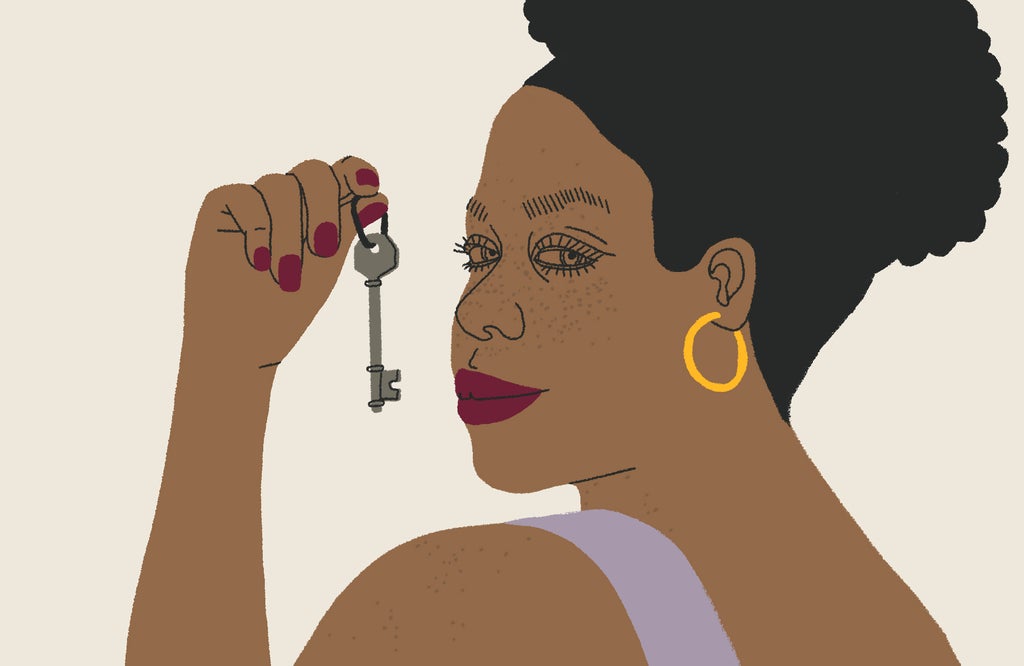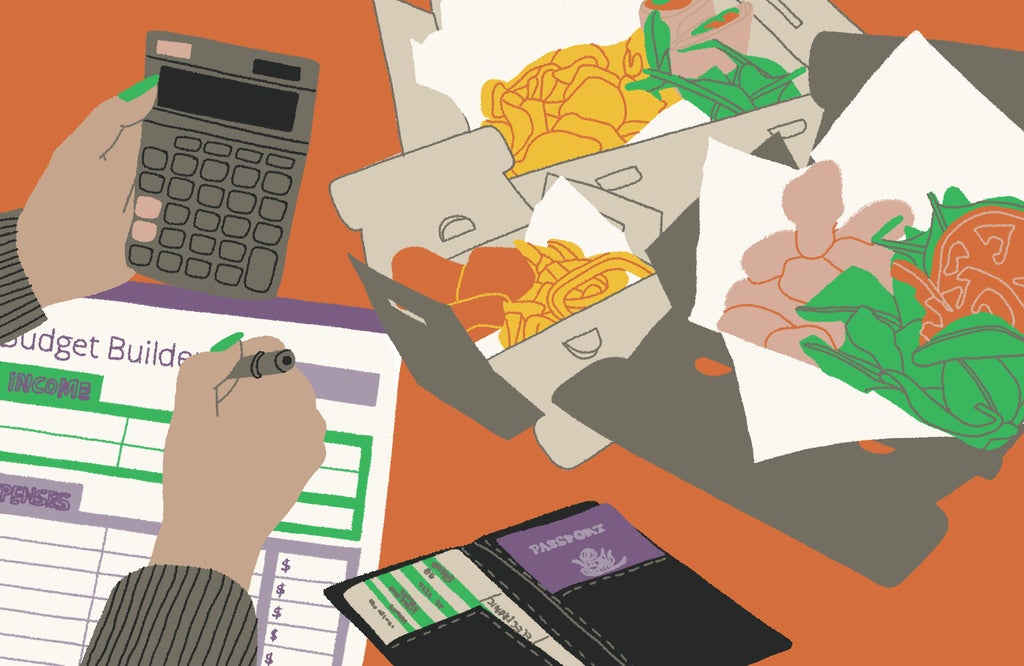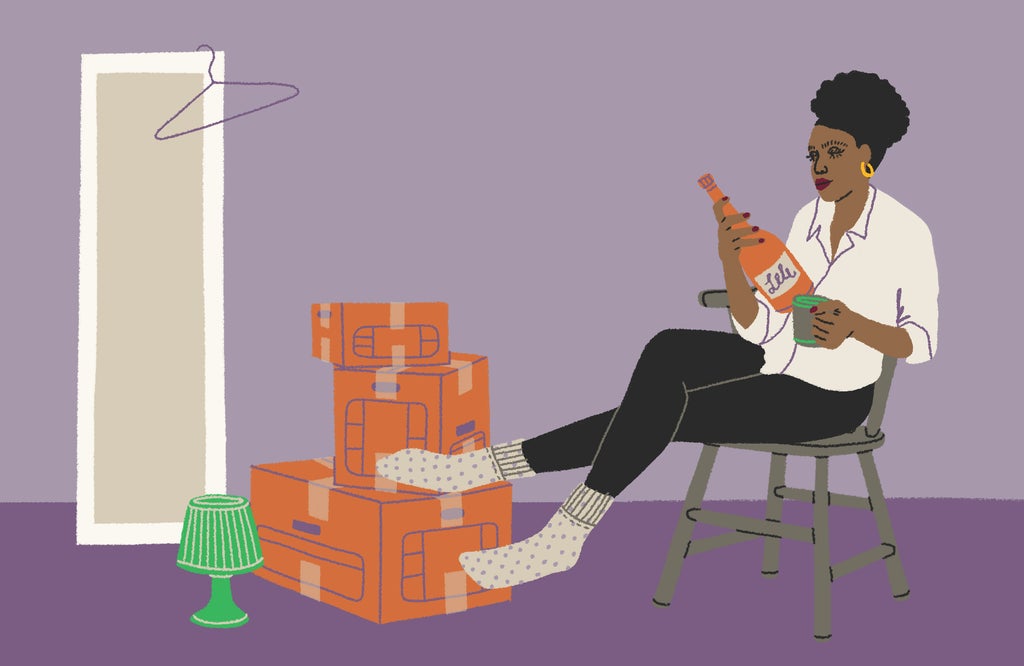Owning a home is still a part of the classic, old-school American dream — but for many, it’s a whole lot more than that. It represents freedom, pride, and most critically, financial security. And for Black women in particular, it’s also about setting a new precedent for what a “homeowner” even looks like.
“Homeownership is how Americans build wealth,” says Keosha Burns, Vice President of Public Relations at Chase. “Black Americans, who haven’t always had access to resources or capital, were largely left out of that.” That gap in generational wealth is one reason Burns has committed herself to making homeownership more accessible than ever for millennials, women of color, and first-time home buyers — and the primary reason Chase has partnered with Essence to spark conversation around race and wealth.

Burns secured her own home four years ago at age 31. As a Black woman still juggling both student loans and credit card debt, the process was both difficult and wildly impactful for her. But for all the stress home buying required, she says that entering that unfurnished Washington D.C. apartment for the first time was a huge personal moment. It was powerful. “There are so many more resources out there than people realize,” says Burns, “and I learned a ton of tricks and ‘cheat codes’ along the way.”
Ahead, Burns opens up about overcoming debt, changing her financial mindset, and the distinct joy in signing a deed.
Why was buying a home especially meaningful to you?
“As a Black, single woman, I was so aware of the importance of homeownership. Any one of those parts of my identity would have prevented me from doing this at another time in our nation’s history. Within my own family, my grandparents, uncles, and their families owned their homes — but I never forgot that they started their lives in the projects in Ohio. I saw the upswing within my family and how empowering it was.
“At the same time, I was still the first to graduate with a college degree. I wanted to live up to my education, and I had seen, firsthand, how important homeownership was to my family members. When I finally purchased, it was one of those moments that makes you think of how proud your ancestors would be to see you. I was achieving something that they fought for me to do. I was standing on their shoulders.
“The significance of buying a home, both for me and my family, was not lost on me. And now, I’m working in the banking industry as a way to empower women — especially women of color — to make the best financial decisions possible for their lifestyles. Home buying is often a big part of that. “
What was the biggest obstacle you overcame in your journey to homeownership?
“The big obstacle for me wasn’t just debt but my own mindset. I think that’s what gets a lot of millennial buyers stuck — we apply our parents’ vision to our very different circumstances. One thing we’re seeing is that women aren’t waiting for arbitrary milestones like marriage and children anymore — nearly 20% of home buyers last year were single women. That’s amazing to me. As young women, we’re being very deliberate about what we want — we’re making plans, and we’re going for it.”

What are some unique challenges Black women face in purchasing a home?
“Like most minorities, and specifically as a Black woman, I am often underestimated or spoken down to. I had several incidents where folks who work in real estate ignored me or simply assumed I wasn’t ready to purchase. Early in the process, I met with a financial advisor who I immediately felt was uninterested in speaking to me. Then he heard where I worked and saw my financial documents and immediately perked up. I ended that discussion shortly after. Later at a store, I was browsing and researching major appliances for my new place. A salesman stopped a coworker from approaching me to see if I needed help and whispered to him, ‘she has no [money].’ It was so ridiculous. They quickly learned that wasn’t the case, but I was not going to reward this behavior with my valuable, self-made cash. I’ve worked so hard for my career, my money, and my good credit score, and I have every right to be in those spaces and to be treated with top-notch customer service like everyone else.
“I also feel like, as a Black woman, I often feel the need to overcompensate in order to refute those stereotypes. I know I have to come prepared, educated, and with everything buttoned up. I have to go above and beyond just to be taken seriously.
“Being aware of the challenges, I chose someone I knew as my realtor. Someone that I trusted would be hands-on, walk me through every step of the process, and be nonjudgmental. I had a great experience and it all went pretty quickly. Buying in Washington, D.C., a historically Black city, I worked with a lot of Black housing professionals throughout the process, which I think played an important role in my having a great experience and shows the importance of diversity in all areas of business. You need a variety of people around you who understand you, your history, and your lifestyle.”
How did you approach saving for the big lump-sum costs?
“It’s easy to feel intimidated by all the major costs in home buying — the down payment and the closing fees. But these days, 3% down payments are actually the norm, not 20%. And there are tons of programs out there to help. You can search for down payment and closing cost assistance in your city, state, and county with a quick Google search.
“And a little known fact: Search by your profession, too — special programs are available for teachers, first responders, and other service professions. Make sure to inquire — or at least do your research.
“I found a program that not only totally covered my entire down payment, I actually got money back at closing! With those big costs knocked out, I focused on paying down my debt and getting several months’ mortgage payments in reserve, which every home buyer should have. It was a major hack for surviving the whole process, and more importantly, it took away the intimidation factor.”
Like so many millennials, you were carrying student and credit card debt — how did you manage to pay those off while buying a home?
“When I first got serious about buying a home, I had $20,000 in student loan debt and $9,000 in credit card debt. But generally, home lenders don’t count student loan debt against you as long as you pay those bills on time. So I decided to choose one type of debt, in my case it was credit cards, and attack that aggressively to free up my income for savings.
“I sat down with my grandfather — he literally took out this ancient pad of green graph paper — and we went down the list of all my credit cards. We wrote down the interest rates and balances and made a plan to methodically tackle each one. I used the ‘snowball’ method — you pay off the credit card with the lowest balance first. Then you roll that money into paying off the next-highest-balance card, and so on. It was really motivating to see quick results and to progressively have fewer and fewer monthly bills.”
Okay, so let’s talk budget — how did you manage your spending?
“We all have places where we spend a lot. I don’t need anyone’s judgment on how much I spend on takeout! It works for my lifestyle — I work long hours, I enjoy it, and it’s no fun cooking for one. So I found other places to streamline.
“At the time I’d been doing annual girls’ trips to the Caribbean, which I skipped the year I was saving aggressively. Another big spending category for me was clothing, so I forced myself to unsubscribe from marketing emails coming in from my favorite designers. No more sample sales! It actually hurt to unsubscribe from some designers, but I went through my whole inbox, and it really helped to curb unplanned spending over the course of the year.
“It was about an 18-month process — by the end of it, I’d paid off all $9,000 in credit card debt and saved $7,000.”
How did you educate yourself about the home-buying process?
“Even though I work in the banking industry, this was still a huge learning process for me. I decided to ask every question on my mind with zero shame. I attended a home-buying seminar and took tons of notes, I asked friends and family, I asked my agent.
“It’s really smart to consult with a financial expert at the beginning of the process, too — even if you just want to know for sure whether or not you can afford to buy. It really helps to just sit down with someone, have them analyze your finances, and help you understand where you are financially. What’s your buying power? How much do you need to save? What timeline should you be working on? These are the answers that can make the home-buying process feel manageable. It’s something anyone can do by walking into a Chase branch and speaking to a Home Lending Advisor, whether you’re a Chase customer or not.”

How did it feel the moment you finally closed the deal?
“I finally closed on my apartment right before Labor Day. As soon as I signed, my realtor and I walked upstairs, opened the door, and it looked like I had just bought the smallest room in the history of apartments! Still, I didn’t doubt myself: I had such a vision of what it was going to be.
“I brought in my air mattress and a camping chair, I ordered takeout, I opened the bottle of Champagne my realtor had brought for me, and I began painting this metallic design on the wall. It was honestly one of the proudest moments of my life. This apartment was mine! It felt like adulting in the best possible way, and it would have been impossible just a short while ago. Doing this on my own — and especially as a Black woman — remains something that I am very, very proud of to this day.”
Quotes of been edited and condensed for clarity.
Like what you see? How about some more R29 goodness, right here?
Click HERE to read more.
You can publish this article on your website as long as you provide a link back to this page.

Be the first to comment